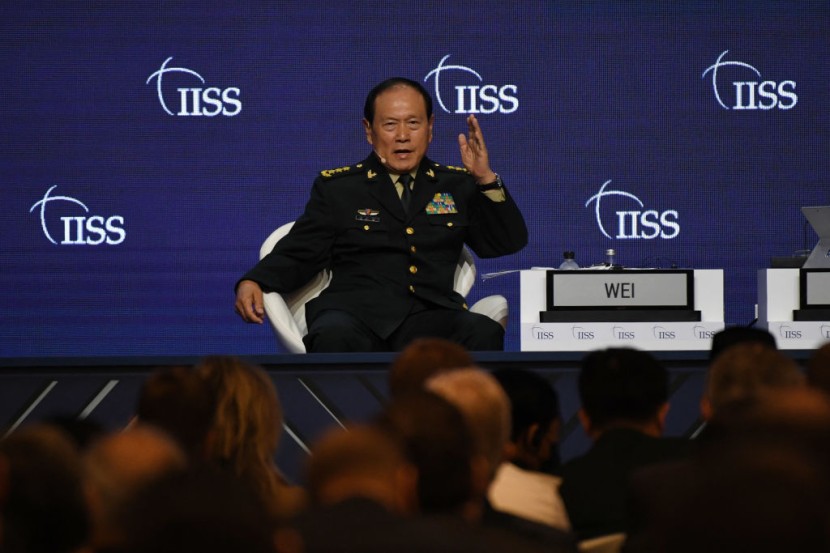
Tensions between the United States and China continue to rise after Chinese Defense Minister Wei Fenghe on Sunday accused America of being a "bully" and "hijacking" countries around the region.
The remarks were made during a combative speech where Wei said that his country would continue to "fight to the very end" to stop Taiwanese independence. The official told Shangri-La Dialogue, Asia's premier defense conference, that Taiwan belonged to China. He added that Beijing would not hesitate to crush any attempt by the self-governed island to "secede."
U.S.-China Tensions
The official's speech, came just weeks after United States President Joe Biden said that the U.S. would respond "militarily" if China attacked Taiwan. The Chinese official's remarks capped a weekend of confrontational exchanges between the American and Chinese military chiefs.
Furthermore, Wei called out U.S. Defense Secretary Lloyd Austin, who said during a conference a day earlier that China was engaged in coercive, aggressive, and dangerous actions. He argued that the decisions threatened to "undermine security, stability, and prosperity in the Indo-Pacific," as per CNN.
Previously, Austin also talked about U.S. coalition-building in the region and its joint military exercises with Japan, Australia, and Indonesia. However, Wei said that the situation was a kind of "power politics" that China profusely rejected. He added that no one and no country should impose its will on others, or bully others under the guise of multilateralism.
Read Also: China Aims To Expand Influence in South Pacific With New Security Proposal, Diplomatic Tour
Wei said that for China, the strategy is an attempt to build an exclusive, small group in the name of a free and open Indo-Pacific, to hijack countries in the region and target one specific country. But the Chinese official reserved some of his harshest criticisms for his American counterpart.
According to Fox News, Wei also noted that China has made progress in developing a nuclear arsenal but argued that it would only be utilized for self-defense purposes. In response to questions regarding the construction of more than 100 nuclear missile silos in eastern China, the official said Beijing has always "pursued an appropriate path to developing nuclear capabilities for protection of our country."
Nuclear Weapons
The Chinese defense minister said that nuclear weapons displayed in a 2019 military parade in Beijing were operational and deployed. The weapons included launchers for China's DF-41 intercontinental ballistic missiles.
In a statement, Wei said, "China has developed its capabilities for over five decades. It's fair to say there has been impressive progress. China's policy is consistent. We use it for self-defense. We will not be the first to use nuclear [weapons]."
The Chinese defense minister also called on the U.S. to stop "smearing and containing China," requesting for the American nation to stop interfering in China's internal affairs. The official said that bilateral relationships cannot improve unless the U.S. stands down.
Wei said that Biden's new Indo-Pacific strategy leads to "conflict and confrontation," which is a reference to the U.S. announcing its Indo-Pacific Economic Framework (IPEF) in May as part of its strategy for the region. It involves 13 countries and excludes China, CNBC reported.
Related Article:
US, Taiwan Unveil New Trade Initiative as China Continues To Increase Military Pressure








